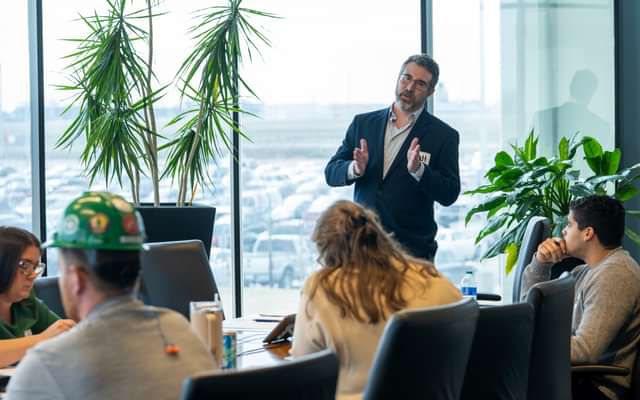Why Farmers Should Say Yes To Media Training

Nearly every agriculture commodity group offers its farmers and livestock producers an opportunity to participate in media training. The session is usually positioned as a resource so you can more effectively “share your agriculture story” with consumers.
As a farmer, what should you expect from your media training?
I’m going to pull back the curtain and give you a public relations sneak peek as a way to urge you to say yes when invited. (And, if you’re an agricultural marketer, commodity group PR leader or in charge of telling your farm organization’s story, make sure the training you plan includes these key takeaways.)
Why Is Media Training Important?
First, it is important to understand that public relations is not advertising. When you pay for an advertisement, commercial or billboard, you completely control the message. With public relations, you are using a third party as the medium to tell your message.
Media training equips you, as a farmer, with the skills and knowledge you need to effectively communicate with the media. Remember, they are the messenger carrying your story to consumers or others you are trying to reach.
When your message comes from a third party, such as a reporter, it is often more believable to the audience compared to self-promotion through advertising or social media posts. A story in a newspaper, magazine or on the radio provides proof that backs up the claims made in your advertising, making all of your messages more credible and trustworthy.
Lack Of Control Often Creates Anxiety
When your farm or ranch’s reputation is on the line, it can be hard to put your trust in a reporter to tell your story the way you want. This lack of control over the final message can be daunting, but with proper media training, you can learn how to communicate your operation’s message effectively.
There are also no guarantees when working with members of the press. Farmers are often timid about talking with reporters because not all PR efforts yield the desired results. Sometimes, farmers feel their words are taken out of context or used incorrectly. Media training creates focus in your messages and helps you remain calm and in control in even the toughest interview situations.
What Do Reporters Want?
In an interview, you are working to explain what you do on your farm and why you do it. Before visiting with a reporter, put yourself in their shoes. What do reporters want?
Effective media training showcases how to make a reporter’s job easier and increase your likelihood of a favorable outcome. Here are some best practices:

Be interesting.
This means do not work from a script. Allow yourself to be spontaneous and conversational. Quotable information showcases an opinion or strong stance. Great interviews are with people who are themselves.
Make it easy for the reporter.
Being brief and complete is better than being long-winded. Even a long-form feature article requires cutting and trimming to get the best information.
Be responsive.
Reporters work in a fast-paced, highly competitive landscape. Often reporters are writing their own stories, taking photos, and collecting imagery or infographics to support their stories. Provide as many resources as possible as quickly as possible.
All of us like to work with people who make our jobs easier and our work better. Your media training should help you get to the point, and it should describe ways to be more responsive and available to reporters.
Being Newsworthy (Hint: It’s Not All About You)
One key aspect of great media training is learning how to elevate your story to make it more newsworthy. Here are a few things to remember:
• Reporters are more likely to cover issues, companies and people that are interesting and relevant.
• Providing a fresh perspective or a unique angle on a topic can make your story more newsworthy.
• You can make your information more relevant by tying it to recent trends or other big news stories. These could include a local news story, state or federal policymaking, or new rules or regulations impacting your farm.
Being newsworthy involves going beyond simply providing information about the facts and figures of your farm or its products. Use a memorable anecdote or tell a personal story. Your audience should hear you explain “why” via your interview with the reporter.
Say Yes To Media Training
Thorough media training will walk you through tips on how to create and use your key messages, and it should prepare you for answering tough questions on your own terms.
Being an advocate for your farm and your industry is increasingly important. By participating in great media training, you can advance your agriculture organization’s goals and represent your farm operation well.